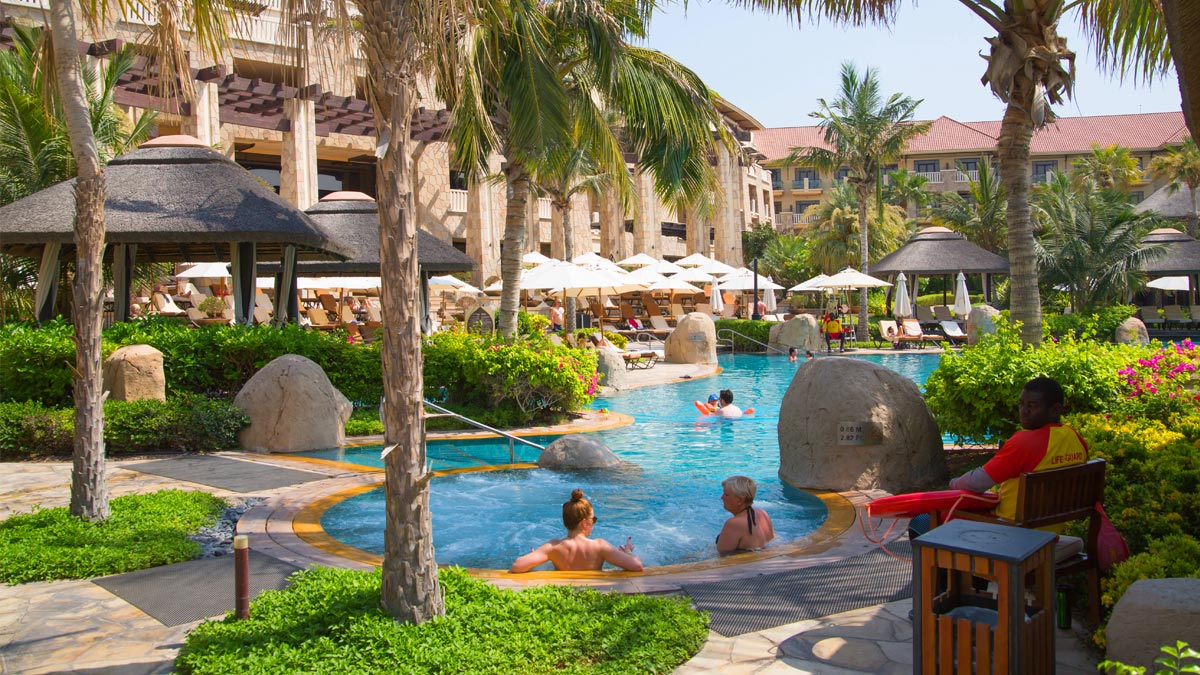CAPE TOWN, South Africa, December 11, 2025/APO Group/ –Inspired by the raw beauty, vibrant culture, and laid-back spirit of Cape Town, Morea House, Autograph Collection, has opened its doors in Camps Bay. The new 90-room hotel joins Autograph Collection Hotels, Marriott Bonvoy’s diverse and dynamic portfolio of independent hotels championing individuality.
Set along one of Cape Town’s most iconic stretches of coastline, Camps Bay is framed by the turquoise Atlantic Ocean and the dramatic Twelve Apostles mountains. The neighbourhood’s palm-lined promenade, sun-soaked beaches, and lively cafés, restaurants, and boutique shops offer a captivating mix of coastal serenity and city energy, providing the backdrop for the Morea House experience.
“Morea House is our first Autograph Collection property in Cape Town, and it reflects the city’s spirit at every turn,” said Sandra Schulze-Potgieter, Vice President, Premium, Select & Midscale Brands, Europe, Middle East & Africa, Marriott International. “From the architecture and interiors to the sweeping views of the ocean and mountains, the hotel unfolds as a place to pause, explore, and connect with the Mother City and its people. Every detail invites guests to savour life’s pleasures, creating an experience that is personal, soulful, and exactly like nothing else.”
Inspired design rooted in nature
Brought to life by award-winning Cape Town interior architect Tristan du Plessis, Morea House is a celebration of contrasts, inspired by the exquisite beauty surrounding the hotel – bold and sculptural, yet softened by natural textures. Timber, stone, and bronze tones are layered with organic silhouettes, creating interiors that feel refined and inviting.
The 90 guestrooms and suites are an ode to their outlook, whether mountain, ocean, or sand, and are accented with bespoke furniture and tactile embellishments that reflect their surroundings. Public areas unfold as a sequence of sensory discoveries, from the expansive terrace to intimate corners showcasing works by South African artists. Contemporary in execution yet rooted in the city’s heritage, each detail is designed to evoke delight, foster connection, and nurture the spirit.
From the architecture and interiors to the sweeping views of the ocean and mountains, the hotel unfolds as a place to pause, explore, and connect with the Mother City
“When guests arrive, our intention is for them to feel as if they’ve discovered a sanctuary created just for them. We want them to leave restored, reconnected, and carrying with them the essence of this place,” says Albert Smit, General Manager of Morea House. “Whether our guests are seeking a romantic escape, a personal reset, or a base for exploring the Cape’s beaches, vineyards, and mountains, Morea House delivers a distinctive experience rooted in place, unlike anywhere else.”
Lebanese flavour meets South African flair
Morea House offers a variety of dining experiences. On the ground floor, OMRI offers modern Lebanese cuisine interpreted through South Africa’s coastal influences, using local ingredients and regional flavours. A beach-facing terrace and a welcoming indoor bar create an easy all-day setting, complemented by a considered selection of regional wines.
On the second floor, Morea House Pool Restaurant captures the essence of coastal living – laid-back yet sophisticated, with fresh, seasonal dishes in a serene poolside setting with sweeping ocean views. At sunset, it transforms into the perfect gathering place for golden-hour cocktails.
A few steps away is The Courtyard – a hidden enclave for quiet reflection, reading, or afternoon tea, while The Wine Room provides an intimate venue for private wine tastings and memorable gatherings.
Bespoke wellness experiences
Wellness is at the heart of Morea House, woven seamlessly into every moment – from daily rituals and dining to curated activities. Guests can embrace Cape Town’s vibrant outdoors with a dip in the pool, sunrise yoga, coastal walks, or guided mountain hikes. Its signature experience, a guided cold-water immersion in the Atlantic, awakens the senses and forges a profound connection to nature.
The Spa follows a holistic philosophy, designed to restore balance through multi-sensory experiences. Signature treatments include the Morea Elemental Flow, a grounding massage with aromatic fynbos oils, and the Morea Ocean Radiance, a head-to-toe ritual combining a thermal circuit with flowing bodywork and sound therapy for complete renewal.
